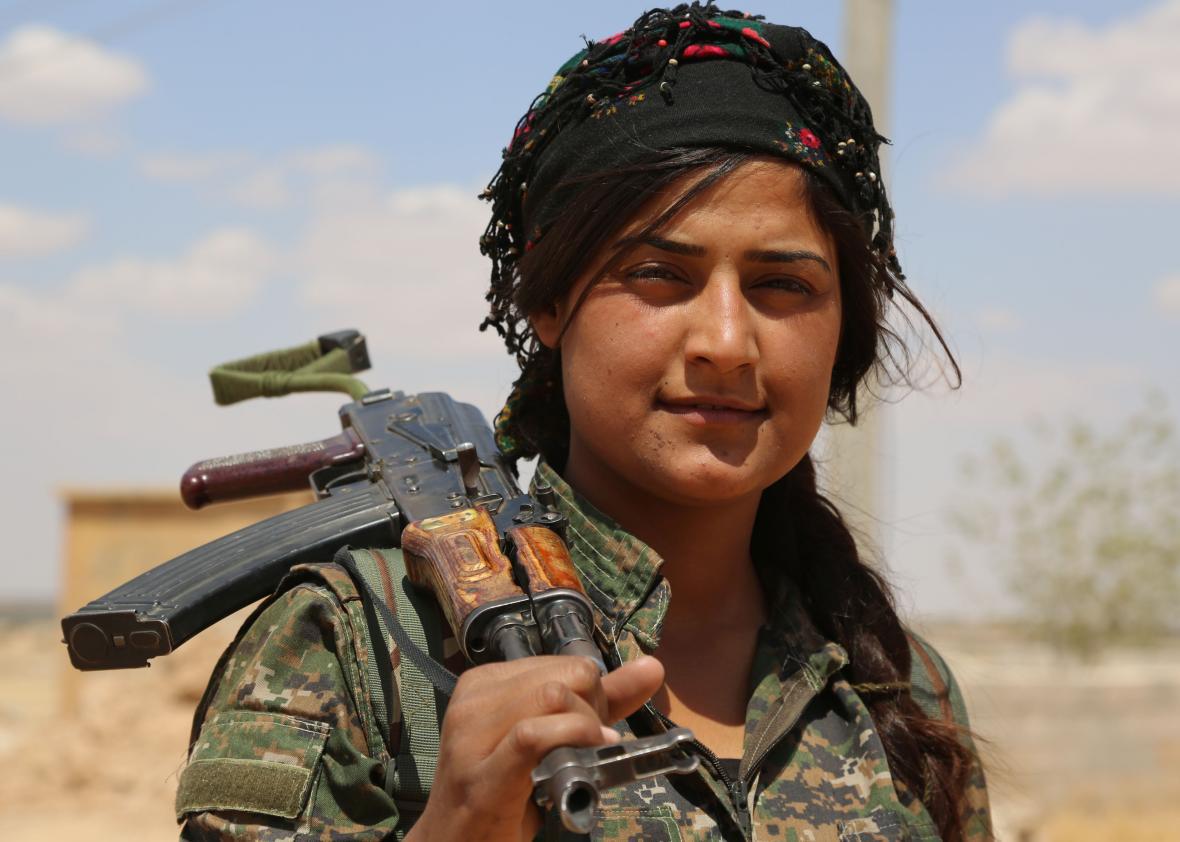The New York Times reports Wednesday that the Obama administration is considering a plan to provide direct military aid to Syrian Kurdish fighters to launch an offensive to retake ISIS’s capital, Raqqa. This is a sign, along with the ongoing campaign to retake Mosul in Iraq, that the administration plans to make the destruction of ISIS a priority in its final months. After the recent collapse of the Syrian cease-fire made a more comprehensive settlement of the Syrian conflict all but impossible, this may be the best Obama can hope for.
The U.S. has already been coordinating operations with the Kurdish People’s Protection Units, known as the YPG, and likely covertly providing them some weapons. It has also provided weapons to a coalition of Turkish-approved Arab fighters and Kurds. But it has avoided directly arming the YPG due to Turkish objections. Turkey views the Syrian Kurdish militias as allies of the PKK, the Kurdish militant group fighting on Turkish soil. Defying Turkey’s wishes so flagrantly would be a pretty big shift.
Tuesday, in a speech to the U.N. General Assembly, Turkish President Recep Tayyip Erdogan included the YPG along with ISIS and Jabhat al-Nusra on a list of terrorist groups carrying out attacks in Syria. Last month, Turkish ground forces and Turkish-backed rebels launched a ground offensive into Syria aimed both at ISIS and at preventing the Kurds from gaining any more territory along the Turkish border.
The Kurds, long marginalized and discriminated against in Bashar al-Assad’s Syria, have carved out an autonomous region in eastern Syria known locally as Rojava or “west,” as in the western region of greater Kurdistan. Rather than full independence, they have declared themselves a federal region, calling for a democratic decentralized Syria. Secular, feminist, and mostly democratic, Rojava gets extremely good press, championed by both hawkish Republican senators and anarchist academics, who gloss over a few of its darker aspects. The Rojava Kurds do share much of the ideology of Turkey’s PKK and revere its imprisoned founder, Abdullah Ocalan, but claim to be an entirely separate organization. That’s been good enough for Washington, but obviously not for Turkey. A decision to provide direct aid to what Turkey considers a terrorist organization will undoubtedly enrage Ankara.
So why would Obama do it? Whatever their political goals, the Syrian Kurds have undoubtedly been one of the most effective forces fighting ISIS. But with Turkey’s recent offensive, Syrian Kurds are, understandably, worried that the U.S. will abandon them once they’re no longer useful, just as it did multiple times during the Iraqi Kurds’ fight against Saddam Hussein. According to the Times, the plan under discussion includes small arms and ammunition but not the heavy artillery and anti-tank weapons that the YPG would like. (Though photos suggest that, somehow or another, the Kurds have gotten their hands on some of these.) That this story is coming out, just a day after Erdogan’s truculent U.N. speech, seems less like a major shift in battlefield strategy than a political signal to the Kurds that the U.S. takes the alliance seriously—and to Erdogan, that he can’t call the shots when it comes to U.S. strategy against ISIS.
Relations between the Obama administration and the Turkish government have been getting rockier for some time now, particularly since the attempted coup in Turkey two months ago and Erdogan’s aggressive crackdown following it. These relations haven’t been helped by the Turkish demands that Washington turn over U.S.-based imam Fethullah Gulen, who Erdogan blames for organizing the coup and who he repeatedly called a terrorist in his speech Tuesday.
Much to the irritation of the Obama administration, it’s been clear for a while that Turkey’s priorities in Syria are containing the Kurds, helping the anti-Assad rebels, and fighting ISIS, in that order. When the administration was still holding out hope of restoring some semblance of peace and stability to Syria, it was necessary to placate Turkey, one of the most important backers of the anti-Assad opposition. Now that Obama seems to have decided that the cruder and simpler goal of routing ISIS from its territory will take precedence during his final year in office, keeping Turkey happy is less important.
